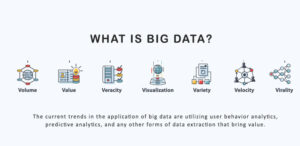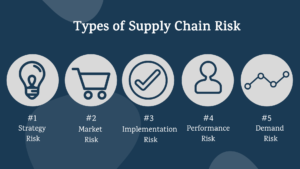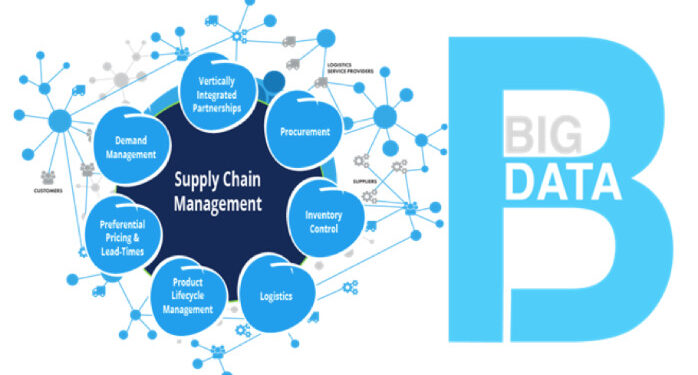Leveraging Big Data for Effective Logistics and Supply Chain Management
Introduction
The use of big data has become a game-changer for businesses across all sectors, including logistics and supply chain management. With the advent of technologies like the Internet of Things (IoT), businesses are now able to collect vast amounts of data from different sources. This data, when analyzed correctly, can provide insights into business operations that were previously impossible to obtain. In this article, we will explore the role of big data in logistics and supply chain management.

- Predictive Analytics
One of the most significant benefits of big data in logistics and supply chain management is predictive analytics. With the use of machine learning and predictive algorithms, businesses can now predict supply chain disruptions, such as delayed shipments or production slowdowns, and take proactive measures to prevent them. This helps businesses to optimize their operations, reduce costs, and improve overall efficiency.
- Inventory Optimization
Big data analytics can also help businesses to optimize their inventory levels. By analyzing historical data, businesses can predict demand patterns and adjust their inventory levels accordingly. This can help businesses to reduce inventory costs while still ensuring that they have the right amount of stock to meet customer demand.
- Route Optimization
Another area where big data is transforming logistics and supply chain management is in route optimization. By collecting data on traffic patterns, weather conditions, and other factors that affect delivery times, businesses can optimize their delivery routes to reduce transit times and improve delivery efficiency. This can lead to significant cost savings and improved customer satisfaction.
- Supplier Management
Big data can also be used to manage supplier relationships more effectively. By analyzing data on supplier performance, businesses can identify areas where suppliers are falling short and take corrective action. This can help businesses to reduce costs, improve quality, and build stronger relationships with their suppliers.

- Customer Analytics
Finally, big data analytics can be used to gain insights into customer behavior and preferences. By analyzing data on customer purchases and feedback, businesses can better understand what their customers want and tailor their products and services accordingly. This can help businesses to improve customer satisfaction and loyalty, ultimately leading to increased revenue and profitability.
- Real-Time Visibility
Another critical aspect of logistics and supply chain management is real-time visibility. With the help of big data, businesses can now track their shipments in real-time, from the point of origin to the point of delivery. This level of visibility allows businesses to make informed decisions, such as rerouting a shipment to avoid a delay or adjusting production schedules to meet changing demand.
- Quality Control
Big data analytics can also help businesses to improve quality control in their supply chain. By analyzing data on product defects and returns, businesses can identify areas where quality issues are arising and take corrective action. This can help businesses to reduce waste, improve product quality, and build a strong reputation for their brand.
- Risk Management
Risk management is another area where big data is transforming logistics and supply chain management. By analyzing data on supplier performance, weather patterns, geopolitical events, and other factors that can impact supply chain operations, businesses can identify potential risks and take proactive measures to mitigate them. This can help businesses to minimize disruptions and maintain continuity in their operations.

- Collaboration
Finally, big data is facilitating greater collaboration between businesses in the supply chain. By sharing data on inventory levels, production schedules, and shipping information, businesses can work together to optimize their operations and improve efficiency. This collaboration can lead to cost savings, faster delivery times, and improved customer satisfaction.
- Sustainability
Big data analytics can also help businesses to become more sustainable. By analyzing data on energy consumption, carbon emissions, and other environmental impacts, businesses can identify areas where they can reduce their environmental footprint. This can lead to cost savings, improved brand reputation, and a better relationship with customers who prioritize sustainable practices.
- Demand Forecasting
Demand forecasting is another area where big data is transforming logistics and supply chain management. By analyzing data on customer behaviour, sales trends, and external factors like weather patterns, businesses can predict demand more accurately. This can help businesses to plan their production schedules, optimize inventory levels, and reduce waste.
- Compliance and Regulation
Finally, big data can help businesses to comply with regulations and standards in their industry. By analyzing data on regulatory requirements, businesses can ensure that they are meeting all necessary standards and avoid costly penalties. This can also help businesses to identify opportunities for improving their operations, such as reducing energy consumption or improving working conditions.

However, there are some challenges associated with the use of big data in logistics and supply chain management. One of the main challenges is the sheer volume of data that businesses must collect and process. This requires significant investment in technology and infrastructure to store and analyze the data. Additionally, there is a shortage of skilled professionals who can analyze the data and derive insights from it.
Another challenge is data quality. If the data is incomplete, inaccurate, or inconsistent, the insights derived from it may not be reliable. It is essential for businesses to ensure that the data they collect is of high quality and that they have processes in place to maintain data integrity.
Privacy and security are also significant concerns when it comes to big data. With so much data being collected and stored, businesses must ensure that they are complying with privacy regulations and that they have robust security measures in place to protect the data from cyber attacks and breaches.
Big data also presents challenges, such as:
Data Privacy and Security: The collection and use of big data can raise privacy and security concerns, requiring logistics providers to implement robust data protection measures.
Data Integration: The integration of different data sources can be complex and require significant investment, posing challenges for logistics providers.
Skill Gaps: The adoption of big data technologies requires a skilled workforce, and logistics providers may need to invest in training and development to bridge skill gaps.

Conclusion
The role of big data in logistics and supply chain management is rapidly evolving. With the help of technologies like the Internet of Things and machine learning, businesses can collect vast amounts of data and gain insights into their operations that were previously impossible to obtain. By leveraging these insights, businesses can optimize their operations, reduce costs, improve quality, and enhance customer satisfaction. As the use of big data continues to grow, we can expect to see even more significant innovations in logistics and supply chain management in the future.



